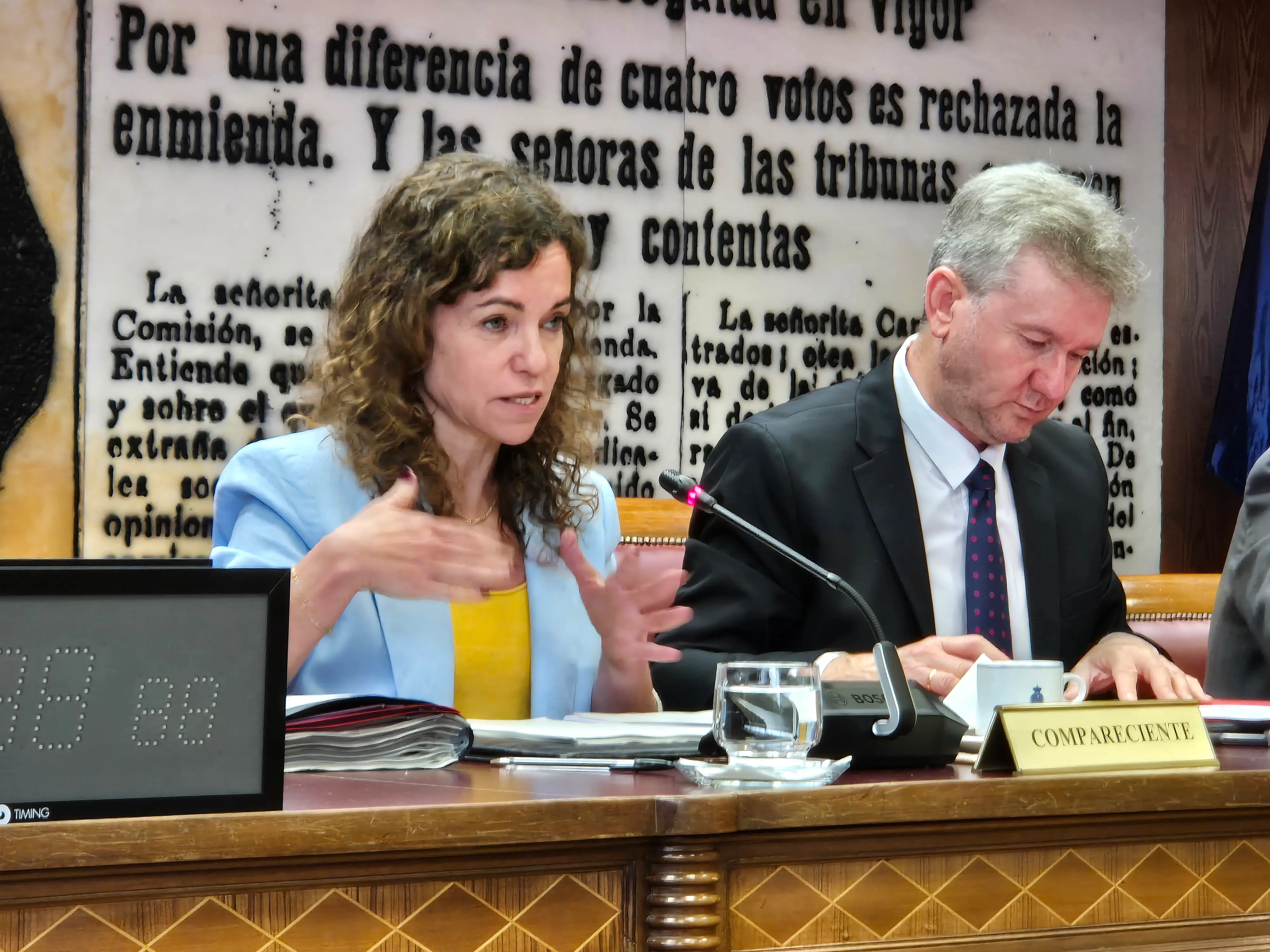The IDP represents a public digital infrastructure with solutions and services for the digital transformation of the tourism ecosystem.
Rosario Sánchez has framed the announcement in the process of tourism transformation in Spain, now with an “unprecedented” public investment of more than 3,400 million euros.
She advanced that the Spain Tourism Strategy 2030 is in the final phase of development, after “a broad process of participation and consensus among the agents of the tourism sector”.
The Secretary of State for Tourism, Rosario Sánchez, announced the launch, this Thursday, of the Smart Destination Platform (PID), a digitalization tool for the tourism sector financed through the Spanish Government's Recovery, Transformation and Resilience Plan, which provides a public digital infrastructure with different solutions and services for destination managers, their business network, tourists and residents.
The Secretary of State made this announcement during her appearance this Thursday before the Senate Committee on Industry and Tourism, to report on the general lines of work of the Secretary of State for Tourism. “The Smart Destination Platform starts today with a structured roadmap and key territorial support”, has remarked Rosario Sanchez, to highlight that in the IDP, a project of the Society for the Management of Innovation and Tourism Technologies (SEGITTUR), aimed at the destinations of the Network of Smart Tourist Destinations.
This platform will contribute to an operational improvement of tourism management in the territory, as well as to a better coordination, which will optimize the tourism offer, while enabling tools for public-private collaboration and allowing SMEs to better understand the visitor's profile, to adapt the offer and achieve a more satisfactory visitor experience.
In addition, 46 destinations in the DTI Network have received 95 million euros in funding from the Ministry of Industry and Tourism to complement their technological capabilities. The entry into operation of the PlD means that the digital services of its central node are already operating as a technological nucleus of reference for tourism transformation throughout the country.
From this launch, a progressive and structured integration process begins that will allow destinations to join the platform according to their level of digital maturity and operational capabilities, ensuring an orderly, inclusive and sustainable progress.
Transformation of the sector with historic investment
The Secretary of State for Tourism has framed this announcement in the process of transformation of the tourism sector that is being promoted from the Ministry of Industry and Tourism, now thanks to “a historic and unprecedented deployment” in terms of public investment, of more than 3,400 million euros destined exclusively to this sector. “Channeling and implementing through actions this unprecedented budget for tourism, has required coordinated work with the entire General Administration of the State, with the autonomous communities and local administrations,” has valued Rosario Sanchez.
In this sense, she detailed that there are currently 560 Tourism Sustainability Plans in Destination being implemented in all the autonomous communities and for a total value of 1,858 million euros. “These plans are allowing the renewal of pioneering and consolidated destinations, and at the same time, are promoting new emerging destinations that are in a more incipient stage of tourism development,” added the Secretary of State.
With regard to another major line of action, such as digitalization, of which the IDP is a part, Rosario Sánchez also highlighted the Last Mile program, endowed with 87 million and aimed mainly at tourism and technology companies. A total of 346 projects have been financed, bringing together a total of 477 companies. Sixty-four projects are consortiums and 282 are individual projects. Most of the beneficiaries (97%) are SMEs. “These digitalization projects have served to improve the management of companies in their relationship with customers, in the management of their profits or in their brand positioning or the development of data spaces,” said Sanchez.
Regarding another relevant program, in this case aimed at improving the competitiveness of the tourism sector, the Secretary of State highlighted the Tourism Experiences Spain program. "A pioneering program in its approach because it moves from the traditional product approach to tourism experiences. We talk about experiences, because we put people and their experiences at the center of the design of our offer," she said. For this program, 453 proposals were received, which brought together 1976 entities of different types. Of all these, 71 projects were selected, bringing together 432 entities spread throughout Spain, which have received funding of 46 million euros.
Strategy Spain Tourism 2030
In her appearance, the Secretary of State for Tourism framed all the policies of her department in a strategy for Spain and its tourism sector to maintain its position of world leadership in the future. “But leading tourism,” she warned, “also involves leading a tourism model with a better redistribution of wealth, with higher quality employment, with greater added value and, in short, a tourism model that serves to improve the quality of life of our citizens.” “This is the commitment of this government, and we think that most of the sector shares this position,” he concluded.
On this issue, he has advanced that the Secretary of State for Tourism is in the final phase of drafting the Spain Tourism 2030 Strategy. “It is a shared strategy that arises from a broad process of participation and consensus among numerous and varied agents of the tourism sector,” he explained, noting that the strategy is based on the premise of “understanding sustainability as a triple nested sustainability: social, environmental and economic, which cannot be separated from each other”.
Source: Ministry of Industry and Tourism
Full press release (in Spanish)
